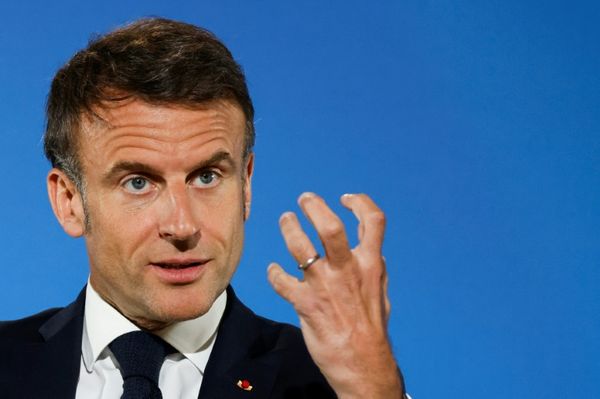
The UK has been neither so good on Ukraine as the government would like to trumpet, nor as bad as its critics suggest.
On the merits side of the balance sheet, the UK has provided extensive military and strategic support for which it has received much Ukrainian gratitude. On the flipside, the UK has been sluggish in helping Ukrainian refugees, taking in far fewer than other European nations.
The open question — and the one that could tip the scale in either direction — is what the UK has done by way of sanctions against Russia and against Vladimir Putin’s inner circle. On the one hand, the UK has introduced a far wider swath of sanctions than it ever has before. On the other, there was an awful lot of UK-Russia business to sanction.
Advocates for the sanctions package note the UK has in many places gone further than the EU, and has encouraged Germany and others to do more than they initially wished. Critics can notice that while Canada’s government has sanctioned Alexander Lebedev, Boris Johnson first partied with, and then ennobled, his son Evgeny. The junior Lebedev has publicly criticised the recent Ukrainian invasion — but had spoken in support of the first, in 2014.
The UK’s law firms have only now given up the clients they were absolutely required to, while — as Private Eye reported last week — the UK’s major accountancy firms have used their somewhat malleable global structures to allow their Russia-based operations to continue as heretofore, zealously following the letter of sanctions law, if not always its spirit.
Other deficiencies have deadlier consequences. The UK has been part of an arms embargo against Russia since its 2014 invasion of Crimea and eastern Ukraine — but only in this latest wave of sanctions has it finally banned so-called dual-use technology, equipment that has legitimate civilian uses but can also be crucial components in military kit. As a result, UK-made transistors have been found in destroyed Russian military kit in Ukraine — including heavy-missile launchers, deployed with devastating results in civilian areas.
The UK’s longstanding laxity regarding tackling dubious gains of the ultra-wealthy is also hampering any real efforts to enforce seizure orders against the oligarch class. By claiming non-dom status and no UK income — just income from overseas — the ultra-rich can get away with filing no or minimal information to tax authorities, meaning that the British state has virtually no record of their assets.
This might not have been deliberately designed to help oligarchs avoid sanctions, but it couldn’t work much better for the purpose if it had — you can’t seize what you can’t find, and the numerous layers of trusts, shell companies, bank trails, and offshore structures that the UK is so good at helping the ultra-rich to build are proving effective.
There are even complaints at the most practically enforceable levels of sanctions. Fishermen in the waters around Shetland are complaining that Russian trawlers continue to fish in UK waters, thanks to a loophole relating to a shared zone of control with the Faroe Islands. From high finance to fisheries, Russia is seemingly doing all too well at finding ways around UK sanctions.
Much as we might imagine it to be so, this is not a problem confined to the UK. Several countries in central Europe that rely on Russia for oil or gas have caved to Russian demands to pay for their fuel in roubles, a show of power by Russia that still helps it secure much-needed foreign currency.
Other countries are dragging their heels on how long they might need to transition away from Russian oil or gas, while Hungary is helping Russia out by dragging talks in the EU over extending its sanctions regime out to be as slow as conceivably possible — with little sign Viktor Orbán will cave and allow sanctions without some commensurate giveaway in his own direction.
Each country has tried — and most continue to try — to mould the sanctions package in ways to suit them — excluding luxury goods or particular services beloved by the oligarch class and provided by them, be it diamonds or high fashion.
Every country talks about its willingness to sacrifice for the purposes of making a stand against Russia, but each country would prefer if others shouldered most of the burden.
The unprecedentedly unified stand democratic nations have made in response to Russia’s unparalleled aggression in Ukraine has been noticed by the world — it has changed the political calculus for would-be autocrats considering their own expansionist moves. Keeping that new world and that new logic requires both sticking the course and making the sanctions actually effective.
Part of the challenge of doing that in the UK is that many of those at the top of politics benefited hugely from the pre-sanctions system — Russian money flowed through the City of London, its banks, its law firms, its PR and lobbying houses, and through donations into the Conservative Party.
The government has the chance to show the world those days are over, and to pick up about the last hope of good PR it has among the mire of the endless “partygate” scandal and its dismal response to the cost-of-living crisis.
But that relies on it actually working to beef up the National Crime Agency and HMRC’s ability to track down the assets of the ultra-rich. It relies on it ramping up the sanctions, even on those who senior ministers used to regard as friends. It relies on it showing the UK is no longer willing to be the butler to the oligarchs who helped Putin amass his fortune and build his army.
That the chances of this actually happening feel so slight and so dismal is testimony to how little faith most of us have left in Johnson’s ability to do anything that isn’t venal or self-serving.
But this is the last issue on which he feels he has a good reputation — perhaps the last issue on which he could hope to have any kind of positive legacy. Might an eye to history overcome Johnson’s usual inaction?







